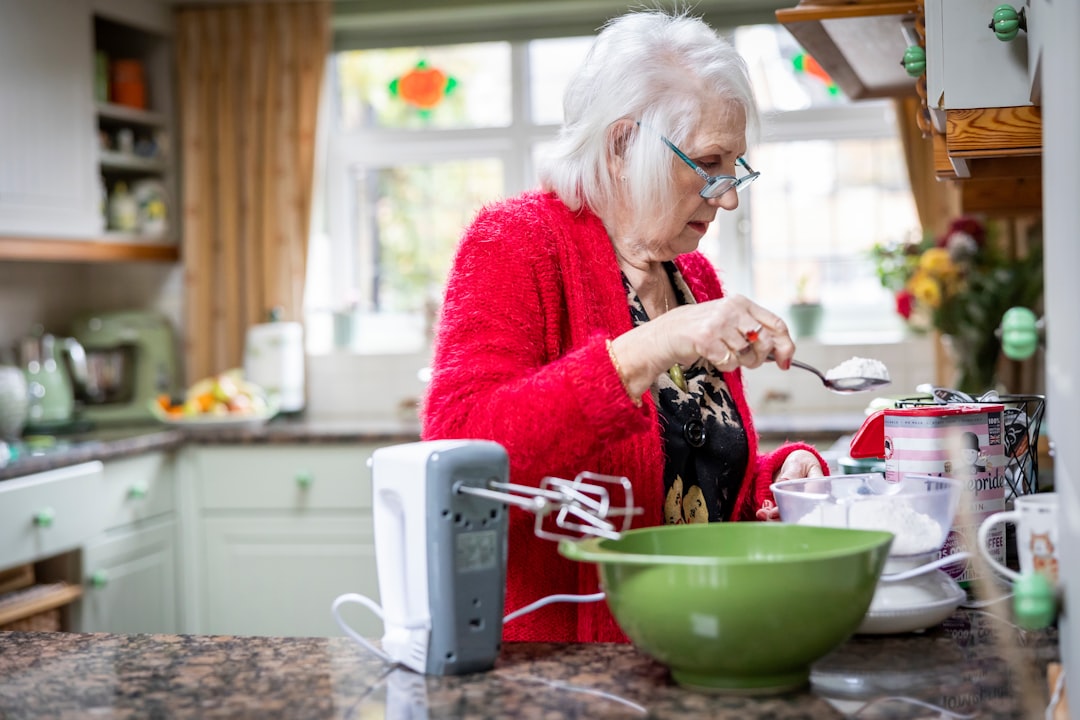As you delve into the intricate relationship between diet and dementia, it becomes evident that what you consume can significantly influence cognitive health. Research has increasingly shown that certain dietary patterns may either mitigate or exacerbate the risk of developing dementia. For instance, diets rich in fruits, vegetables, whole grains, and healthy fats have been associated with a lower incidence of cognitive decline.
Conversely, diets high in processed foods, sugars, and unhealthy fats can contribute to inflammation and oxidative stress, both of which are linked to neurodegenerative diseases. Moreover, understanding this connection is crucial for seniors who may already be experiencing cognitive decline.
By prioritizing nutrient-dense foods, you can help create an environment that fosters brain health and potentially slows the progression of dementia. This awareness empowers you to make informed dietary choices that could have lasting effects on cognitive health.
Key Takeaways
- A healthy diet can play a crucial role in managing dementia symptoms and slowing its progression.
- Key nutrients such as omega-3 fatty acids, antioxidants, and vitamin B12 are essential for cognitive health in seniors with dementia.
- Proper hydration is important for seniors with dementia to maintain cognitive function and overall well-being.
- Meal planning and preparation should focus on easy-to-eat, nutrient-dense foods that cater to the individual’s preferences and needs.
- Caregivers play a vital role in addressing weight loss, malnutrition, and eating difficulties in seniors with dementia, and should seek professional guidance for tailored dietary recommendations.
Key Nutrients for Cognitive Health in Seniors with Dementia
When considering the dietary needs of seniors with dementia, certain nutrients stand out as particularly beneficial for cognitive health. Omega-3 fatty acids, found in fatty fish like salmon and walnuts, are known for their anti-inflammatory properties and their role in maintaining brain cell structure. Incorporating these into your diet can be a simple yet effective way to support cognitive function.
Additionally, antioxidants such as vitamins C and E, found in berries and leafy greens, help combat oxidative stress, which is often elevated in individuals with dementia. Another critical nutrient is B vitamins, particularly B12 and folate. These vitamins play a vital role in brain health by supporting neurotransmitter function and reducing homocysteine levels, which are linked to cognitive decline.
You might consider including fortified cereals, legumes, and green vegetables in your meals to ensure adequate intake of these essential nutrients. By focusing on these key nutrients, you can create a dietary plan that not only supports cognitive health but also enhances overall vitality.
The Importance of Hydration for Seniors with Dementia

Hydration is often an overlooked aspect of dietary health, yet it plays a crucial role in the well-being of seniors with dementia. As you age, your sense of thirst may diminish, making it easy to overlook the need for adequate fluid intake. Dehydration can lead to confusion, increased risk of falls, and even exacerbate cognitive decline.
Therefore, it is essential to prioritize hydration by encouraging regular fluid consumption throughout the day. You might find it helpful to incorporate a variety of hydrating options beyond plain water. Herbal teas, broths, and even fruits with high water content can contribute to your daily fluid intake.
Additionally, setting reminders or using visually appealing containers can make drinking more engaging and enjoyable. By fostering good hydration habits, you can significantly improve both physical health and cognitive function in seniors with dementia.
Meal Planning and Preparation Tips for Seniors with Dementia
| Meal Planning and Preparation Tips for Seniors with Dementia |
|---|
| 1. Keep a routine |
| 2. Use simple recipes |
| 3. Provide visual cues |
| 4. Use familiar utensils and dishes |
| 5. Offer small, frequent meals |
| 6. Ensure a safe cooking environment |
| 7. Involve the senior in meal preparation |
Meal planning and preparation can be particularly challenging for seniors with dementia, but with some thoughtful strategies, you can make this process more manageable. Start by creating a weekly meal plan that includes a variety of nutrient-dense foods.
You might consider involving the senior in the planning process to give them a sense of ownership and control over their meals. When it comes to preparation, simplicity is key. Opt for easy-to-make recipes that require minimal steps and ingredients.
Batch cooking can also be beneficial; preparing larger quantities of meals allows you to freeze portions for later use. This not only saves time but also ensures that nutritious meals are readily available when needed. By implementing these meal planning and preparation tips, you can help create a positive dining experience that supports both nutrition and enjoyment.
Addressing Weight Loss and Malnutrition in Seniors with Dementia
Weight loss and malnutrition are common concerns among seniors with dementia, often stemming from changes in appetite or difficulty in eating. As you navigate this issue, it’s important to recognize the signs of malnutrition early on. Unintentional weight loss, fatigue, and changes in mood can all indicate that dietary needs are not being met.
You may need to assess the senior’s eating habits closely and consult with healthcare professionals if you notice any concerning changes. To combat weight loss, consider incorporating calorie-dense foods into meals without increasing portion sizes significantly. Nut butters, avocados, and full-fat dairy products can add essential calories while still providing vital nutrients.
Additionally, offering smaller, more frequent meals may be more appealing than traditional three-meal structures. By addressing weight loss proactively and creatively adjusting meal options, you can help ensure that seniors with dementia receive the nutrition they need to thrive.
Strategies for Managing Eating Difficulties in Seniors with Dementia

Eating difficulties are common among seniors with dementia due to various factors such as cognitive decline or physical limitations. As you work to manage these challenges, consider creating a calm and inviting mealtime environment. Reducing distractions—such as loud noises or clutter—can help the senior focus on their meal and enjoy the experience more fully.
Another effective strategy is to modify food textures based on individual needs. Some seniors may struggle with chewing or swallowing; therefore, offering softer foods or pureed options can make eating easier and more enjoyable. Additionally, using colorful plates or utensils can stimulate interest in food and encourage eating.
By implementing these strategies thoughtfully, you can help seniors navigate eating difficulties while promoting a positive relationship with food.
Special Considerations for Seniors with Dementia and Diabetes
For seniors managing both dementia and diabetes, dietary considerations become even more critical. Balancing blood sugar levels while ensuring adequate nutrition requires careful planning. You may need to focus on low-glycemic index foods that provide sustained energy without causing spikes in blood sugar levels.
Whole grains, legumes, and non-starchy vegetables should be staples in their diet. It’s also essential to monitor carbohydrate intake closely while ensuring that meals remain enjoyable and satisfying. You might consider working with a registered dietitian who specializes in diabetes management to create a tailored meal plan that meets both dietary needs effectively.
By addressing these special considerations thoughtfully, you can help seniors navigate the complexities of managing both conditions while maintaining their overall health.
Promoting Independence and Dignity in Mealtime for Seniors with Dementia
Promoting independence during mealtime is vital for maintaining dignity among seniors with dementia. Allowing them to participate in meal selection or preparation fosters a sense of autonomy that is often diminished by cognitive decline. You might encourage them to choose from a selection of pre-prepared meals or assist in simple tasks like setting the table or stirring ingredients.
Additionally, consider adaptive utensils or plates designed for ease of use. These tools can empower seniors to feed themselves more comfortably and confidently. By creating an environment that values independence while providing necessary support, you can enhance their mealtime experience significantly.
The Role of Caregivers in Supporting Senior Dietary Recommendations for Dementia
As a caregiver, your role is pivotal in supporting dietary recommendations for seniors with dementia. Your involvement can make a significant difference in their nutritional intake and overall well-being. It’s essential to stay informed about the latest research on diet and dementia so that you can advocate effectively for the senior’s needs.
Moreover, fostering open communication with healthcare providers allows you to tailor dietary recommendations based on individual preferences and requirements. Regularly discussing any changes in appetite or eating habits will enable you to adjust meal plans accordingly. By being proactive and engaged in their dietary care, you can help ensure that seniors receive the nutrition they need while navigating the complexities of dementia.
Incorporating Cultural and Personal Preferences into Dietary Recommendations for Seniors with Dementia
Cultural background and personal preferences play a significant role in shaping dietary habits. As you develop meal plans for seniors with dementia, it’s crucial to consider these factors to ensure that meals are not only nutritious but also enjoyable. Engaging the senior in discussions about their favorite foods or traditional dishes can provide valuable insights into their preferences.
You might also explore ways to adapt traditional recipes to meet nutritional guidelines while preserving cultural significance. This approach not only honors their heritage but also encourages a positive relationship with food during mealtimes. By incorporating cultural and personal preferences into dietary recommendations, you create an environment where seniors feel valued and understood.
Seeking Professional Guidance for Tailored Dietary Recommendations for Seniors with Dementia
Navigating dietary needs for seniors with dementia can be complex; therefore, seeking professional guidance is often beneficial. Registered dietitians specializing in geriatric nutrition can provide tailored recommendations based on individual health conditions and preferences. They can help assess nutritional status, identify potential deficiencies, and develop comprehensive meal plans that address specific needs.
Additionally, involving healthcare providers ensures that any dietary changes align with medical advice regarding medications or other health conditions such as diabetes or heart disease. By collaborating with professionals in the field of nutrition and healthcare, you can create a holistic approach to dietary management that supports the overall well-being of seniors with dementia while addressing their unique challenges effectively.
When considering dietary recommendations for seniors with dementia, it’s essential to focus on nutrition that supports cognitive health. A related article on this topic can be found on Explore Senior Health, which provides insights into how certain foods and nutrients can play a role in managing dementia symptoms. For more detailed information, you can read the article by visiting this page. This resource offers valuable guidance on incorporating brain-healthy foods into the diet of seniors, aiming to enhance their overall well-being and quality of life.
WATCH THIS!🧠 The Breakfast Mistake That Fuels Senior Memory Loss
FAQs
What are the dietary recommendations for seniors with dementia?
Seniors with dementia should follow a diet that includes plenty of fruits, vegetables, whole grains, lean proteins, and healthy fats. It is also important to limit processed foods, sugary snacks, and excessive amounts of caffeine and alcohol.
Why is a healthy diet important for seniors with dementia?
A healthy diet can help improve overall health and well-being for seniors with dementia. It can also help manage symptoms and reduce the risk of other health conditions such as heart disease and diabetes.
What are some specific foods that are recommended for seniors with dementia?
Foods rich in antioxidants, omega-3 fatty acids, and vitamins and minerals are recommended for seniors with dementia. This includes berries, fatty fish, nuts, seeds, and leafy greens.
Are there any foods that should be avoided for seniors with dementia?
Seniors with dementia should avoid foods high in saturated and trans fats, as well as foods high in sugar and sodium. Processed foods and sugary snacks should also be limited.
How can caregivers help seniors with dementia maintain a healthy diet?
Caregivers can help by preparing nutritious meals and snacks, encouraging hydration, and creating a calm and pleasant eating environment. It is also important to monitor any changes in appetite or eating habits.
